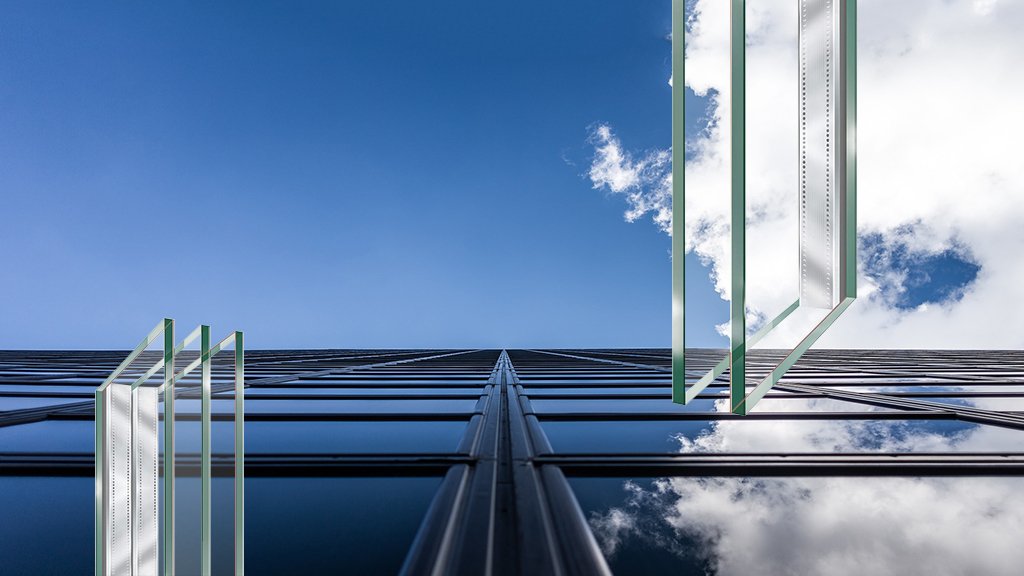
Natural Materials – The Role of Glass in Modern Construction
Glass is one of the most versatile and practical materials in modern architecture and the construction industry. Its versatility, aesthetic appeal, and sustainable characteristics make it an irreplaceable material in contemporary constructions. This blog explores the key aspects of the role of glass in construction as a natural material contributing to sustainable practices.
In the world of architecture and construction, the use of glass as a fundamental building material has become an integral part of modern structures. From towering glass skyscrapers to elegant glass facades, glass has become a symbol of modernity, functionality, and aesthetics in construction. What sets it apart, besides its transparency, is its ability to simultaneously provide thermal efficiency and visual harmony both inside and outside buildings.
Transparency and Natural Lighting
One of the primary advantages of glass in construction is its ability to allow natural light to pass through. This reduces the need for artificial lighting, saving energy and creating a more pleasant environment for living and working. The transparency of glass enables the creation of open and spacious spaces, and its ability to be combined with other materials allows for diverse design expressions. Glass can also be treated to provide additional characteristics such as thermal insulation, noise reduction, and UV protection.The transparency of glass also allows for a connection to the external environment while providing a sense of spaciousness within enclosed spaces.
Thermal Efficiency and Temperature Regulation
Modern thermal insulating glass plays a crucial role in maintaining the energy efficiency of buildings. Double and triple glazing reduces heat loss, allowing for better regulation of internal temperatures and reducing the need for heating or cooling. This helps reduce energy consumption and contributes to a reduction in the ecological footprint of buildings.Sustainability and Recycling
One of the key advantages of glass is its ability to be fully recycled and reused. Glass recycling reduces the need for new raw materials and energy, making it an environmentally friendly material. Due to its durability and recyclability, glass is often used as a sustainable material in construction projects.Glass is a natural material that can be completely recycled without a loss of quality or purity. This aspect of glass as a building material emphasizes its sustainability and contribution to waste reduction. Recycled glass can be used to manufacture new glass surfaces, reducing the demand for new raw materials and energy.
Aesthetics and Modern Design
In the world of modern design, glass serves as a means to achieve aesthetic appeal and innovation. Glass is a material that transcends its basic role as a transparent element. Its characteristics make it highly valued in the construction industry, aesthetic design, and everyday life. Versatility, durability, and recyclability make glass relevant and sustainable in the modern world. Glass allows architects and designers to create impressive and innovative structures. Contemporary design uses glass to create spacious interiors, captivating facades, and public spaces that blend functionality with aesthetics. Glass is often used to create iconic buildings that become symbols of the modern urban landscape.Protection from External Influences
Glass also plays a role in protecting interior spaces from external influences such as weather conditions, noise, and pollution. Specialized glass can provide noise insulation, UV radiation protection, and other features that enhance the quality of life within buildings.Glass, as a natural material, has a profound impact on construction and architecture. Its thermal, aesthetic, and sustainable characteristics not only make it a key component of modern constructions but also a means to achieve more sustainable and efficient construction practices. Through innovative applications and technologies, glass remains a vital component of sustainable construction that shapes our urban future.
In addition to its transparency, glass is a strong and durable material capable of withstanding physical forces and temperature changes. These properties make it useful for various applications, including windows, doors, building facades, packaging, tables, and other objects. Additionally, glass is a hygienic material that is easy to clean and maintain.
